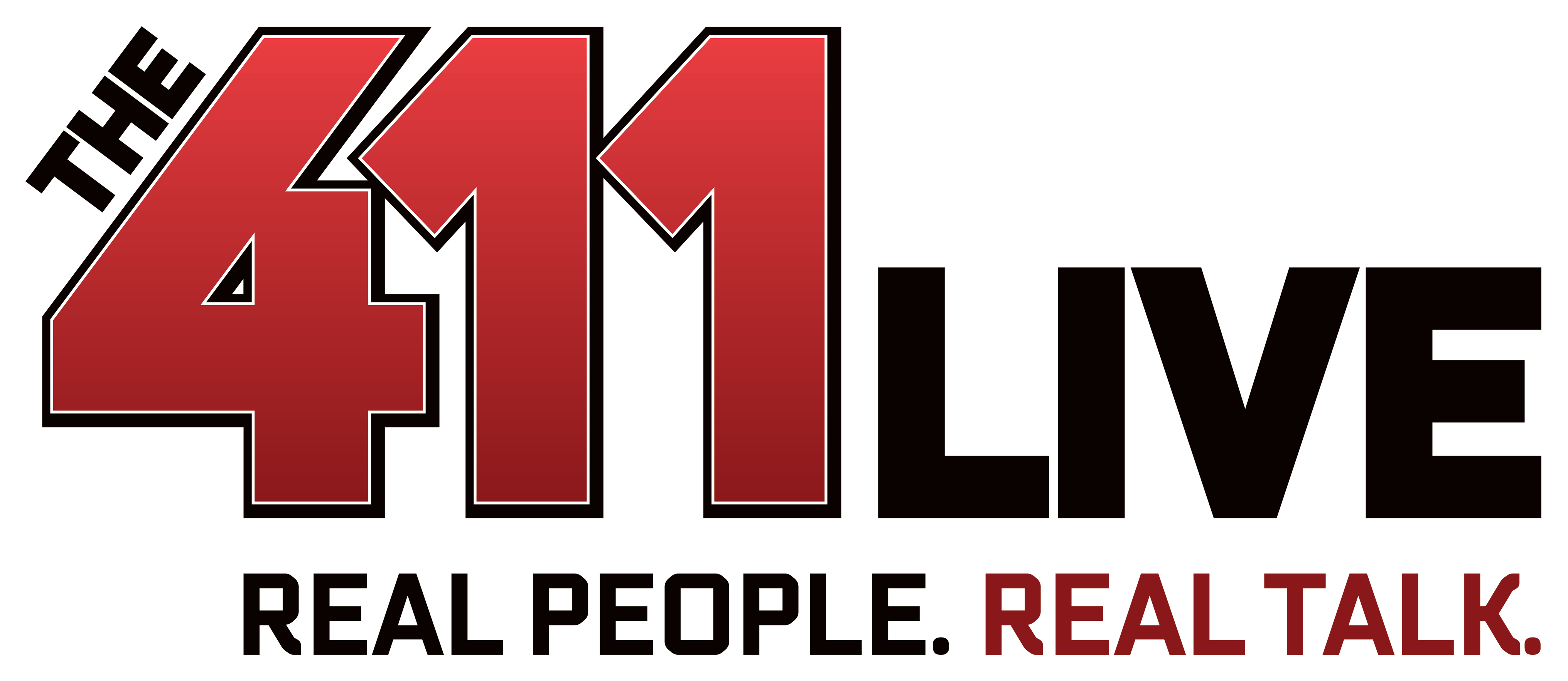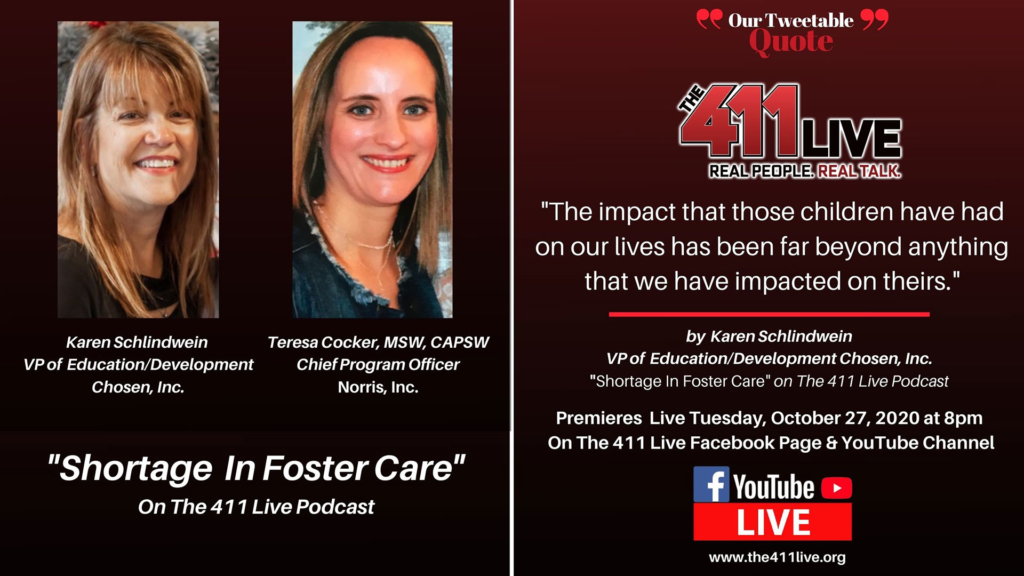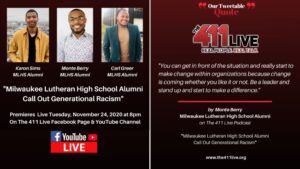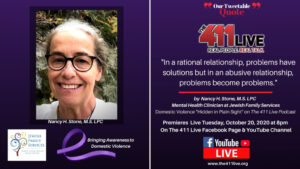By Emma Bonack
Foster Care Placement Needs in Wisconsin
Host Beverly Taylor explores the myths and facts of foster care in this edition of The 411 Live: “Foster Care Shortage”. Joining her is Karen Schlindwein, vice president of Education and Development of Chosen, Inc., and Teresa Cocker, chief program officer at Norris, Inc. Beverly opens with the question, “How many children are in foster care in Wisconsin?” Theresa informs us, “There are over 7000 foster kids, 50% from southeastern Wisconsin.” The challenge is finding suitable foster homes for all of these children. Teresa explains why, “Ideally, a referral would be sent, we would read information about a child and then have three or four homes to be able to look at to really see what is the best fit. Unfortunately, the reality is, we’re lucky, and counties are lucky if they find a home for the child.”
How Foster Care Happens
The foster system begins with reports from teachers or doctors in a child’s life that see signs of neglect or abuse. Social workers then investigate those reports and determine if the children are in danger or not; if so, they look for a potential foster home for temporary, short-term or long-term placement. There are different levels of foster placement that social workers look for. Level one placement involves family, relatives or close friends. Level two placement involves people who have applied to participate in the foster care system. Teresa Cocker tells us in this “general foster care”, anyone can apply to be a foster parent. They don’t necessarily have to have parenting experience. “They will receive some training, some support, and the kids that are referred to those homes are generally developmentally on track.” Level three placement involves parents with experience or knowledge about the more therapeutic side of the spectrum to provide care for children with traumatic backgrounds.
Common Fostering Barriers
It’s not enough that the foster system has levels of foster needs, Teresa also shares that there are some barriers the community assumes exist which prevent potential foster parents from doing so. The first barrier is the assumption that becoming a foster parent is a difficult process. Karen Schlindwein shares, “There is no perfect system. Um, but what we’ve learned is that there are so many other things such as children and the impact that you can have on the child.” She tells us the second barrier is the fear of getting attached to the child and then having to give them up in non-permanent placements, “It’s about that child and about the needs of that child. And if you can put their needs first, that part of it is still gonna be hard, but when you consider the imprint you make on that child’s life, it makes it a little bit easier.” The third and most common barrier is the fear of not having enough training or support. Karen Schlindwein reassures us there are many means of support for foster families. “They don’t realize that organizations like Chosen exist. We opened our Waukesha facility, the Family Closet in May of 17. And it has grown to the point that we needed a second space in the building to put all the overflow and off-season clothes. 70% of our families are from Milwaukee County, so we are taking steps now to open a second closet next year in Milwaukee County.”
Where’s a Good Place to Start?
Now that the obstacles to fostering children have become half their size, the question that remains is “How do I get the ball rolling?” Karen Schlindwein brings up an event that could be a shortcut for many of us. “Open Hearts, Open Homes is our annual gala on November 14th. This year, it will be virtual because of the pandemic. Um, but it will celebrate the work of foster and adoptive families. And it also raises awareness that we need many more families going into next year, especially.”
Karen points out how fostering numbers have gone down during the Safer at Home order because of online schooling and virtual health visits, but that doesn’t mean that there aren’t children in need. This gala is a free online event with an hour program on stories of current foster families and adoptions, auctions, and surprises.
The best part is that all the information on how to register and explore the idea of fostering is just a click away through choseninlove.org/2020gala.






